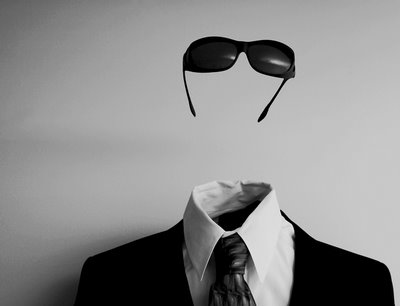From Monday's Taipei Times:
Former president Lee Teng-hui (李登輝) yesterday accused President Ma Ying-jeou (馬英九) of incompetency, lashing out at his administration for failing to offer concrete measures to curb public apprehension over events such as the recent melamine contamination and the poor performance of the TAIEX.
Now, I've seen a few possible explanations for the governments' poor performance:
- President Ma Ying-jeou is attempting to create a precedent for a "Queen of England" presidency for Taiwan. Unfortunately for him, he has no Taiwanese model for him to draw upon.
- The KMT has been out of power for 8 years, and its governing skills are out of practice.
Without disagreeing with point #1, I'd like to elaborate a little upon point #2. While it's true that the KMT lost control over the executive for the last 8 years, it DID have effective working control over the legislative branch over the same time frame. So how did it spend its time? Did the KMT spend the last 8 years KEEPING ITS GOVERNING SKILLS SHARP by actually passing into law legislative proposals that would benefit Taiwan?
Or did it DULL THAT EDGE by spending those 8 years engaged only in pointless, petty obstructionism? *
I've seen the China Post sneer at former President Chen Shui-bian's record, asking what it was that Chen accomplished over the last 8 years. I can think of a few things**, but let me turn the question around. What did the KMT-dominated LEGISLATURE accomplish in the last 8 years? They had a majority, after all. Their votes were law — Taiwanese presidents have no veto power.
Once more, what legislative successes can KMT lawmakers boast about on THEIR resumes? Hmm? Anyone? Anyone? I'm waiting . . .
A former marathon winner comes out of a long retirement for a big race. He thinks he's got a good chance to win again. But does he?
Not if he's spent the last 8 years scarfing down doughnuts and grousing about how easy kids today have got it. If he hasn't spent enough time in training, maintaining his skills, our runner's fans are in for a major disappointment.
* Speaking of pointless, petty obstructionism, here's a case in point:
The Presidential Office is thankful that the US government sent an official notification on Friday to Congress on the sale of five major packages of weaponry to Taiwan, officials said yesterday, adding that the move signaled a new era of mutual trust between Taiwan and the US.
“The notification of the US government put an end to the turbulence of the past eight years and rebuilds mutual trust between the US and Taiwan,” Presidential Office Spokesman Wang Yu-chih (王郁琦) said yesterday.
Uh-uh — you don't get off that easy, Mr. Wang. Your boss, President Ma Ying-jeou, spent TWO YEARS boycotting those arms packages when he was in opposition. As KMT chairman, Ma blocked 'em 60 times in the legislature. Nyet, nyet, nyet, nyet . . . Sixty times. You can't pawn THAT off on the former president, buddy.
In the end, Ma relented on the special arms bill. By that time however, America viewed him and the KMT as fundamentally untrustworthy. And the U.S. put the weapons sale on hold.
And so it was that the KMT was reduced to begging — BEGGING! — for that which it had so casually boycotted and dismissed as unnecessary just a few months earlier:
The United States could see its credibility among Taiwanese at stake if it fails to approve a pending Taiwan arms procurement package . . . [Taiwanese] Defense Minister Chen Chao-min said Monday.
Please, please, please, sell us these weapons. 'Cause if you don't, uh . . . you'll, you'll . . . look really bad. Really, REALLY bad . . . The passive-aggressive approach — yeah, that's the ticket!
As for the credibility of the Ma Ying-jeou administration, we'll escape unscathed. Why, we're a lean, mean, governin' machine.
With the 24% approval rating to prove it.
** At the top of my head, Chen's accomplishments as president include the de-politicization of Taiwan's military, increased democritization (via a new referendum law) and his partially-successful attempts to de-normalize Taiwanese worship of former dictators Chiang Kai-shek and Chiang Ching-kuo.
Set against that record are troubling charges of corruption and money-laundering. Which if proven true, make his presidency a very mixed bag.
